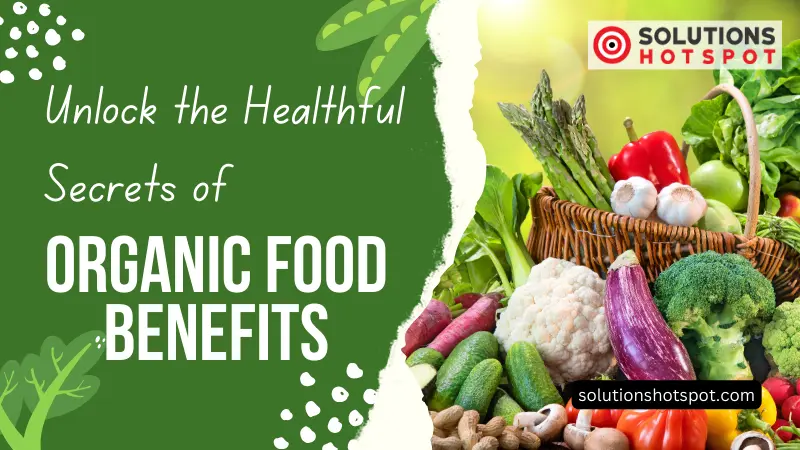Organic Food Benefits: Immerse yourself in the vibrant, healthful world of organic foods: a sector of our food industry that’s picking up pace as more and more consumers become aware of their dietary choices. So, what’s all the buzz about? Organic food refers to foods grown without synthetic pesticides, genetic modification, or artificial fertilizers, tapping into traditional farming methods that prioritize eco-friendly practices. Boasting a host of benefits, organic food is often touted as a crucial key to bolstering our immune system, reducing our disease risk, and nurturing biodiversity.
You’ll also find that organic farming strikes a harmonious balance between nature and productivity and brings about a refreshing element of transparency to our food sourcing, assuaging fears related to food safety and pesticides. Getting into the organic groove could be more straightforward than you think, with a bag of organic produce being a simple first step. This blog will unfold the misconceptions about organic food and arm you with a comprehensive guide on transitioning to an organic lifestyle, shedding light on smart shopping for organic products. Start discovering the multi-faceted organic food benefits now!
An Organic Gateway to Immune Strength
Organic food is intimately connected to our body’s strength and resilience towards illness. It
offers a bridge to bolster our immune system, acting as a shield against various health issues. The nutrient-rich content of organic food, devoid of harmful pesticides and synthetic fertilizers influences overall health and boosts immunity. Researchers like Cindy Leung, assistant professor at the University of Michigan School of Public Health, have found that organically grown foods contain higher levels of certain nutrients, including antioxidants, which play a pivotal role in strengthening our immune system.
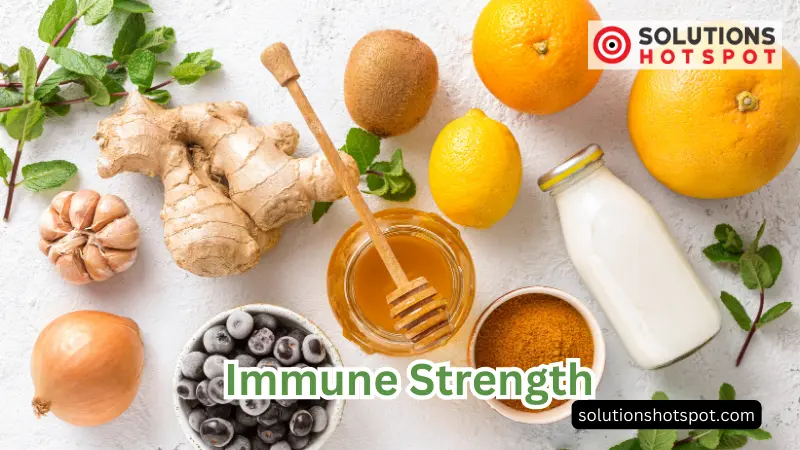

Unlock the Healthful Secrets of Organic Food Benefits
Also Read: What is Organic Food and Why Should You Care?
Moreover, the regular consumption of organic food gives our bodies an upper hand in warding off diseases. Studies published in the British Journal of Nutrition illustrate that organic foods may lower the risk of certain types of cancers. Like, the high content of antioxidants in organically grown fruits and vegetables may help reduce the risk of chronic diseases, including cancer, by supplying our bodies with the right armor for its defense system. Therefore, an organic diet is a practical investment in one’s health acting as a natural armor against diseases, ensuring a more robust immune system and enhancing longevity.
Friendly Bugs: Organic Farming and Safe Ecosystems
Organic farming is more than just a trend, it’s a commitment to biodiversity and a healthier
ecosystem. Environmental scientists claim that this method of farming contributes beneficially to preserving various plant and animal species. This is largely due to strict organic farming principles, which promote diverse habitats and non-chemical pest control methods. As an example, an apple farm practicing organic techniques would not only yield cleaner apples but enables the coexistence of different insect species, earthworms, and birds which in turn helps maintain the soil’s nutrient cycle without harmful chemicals.
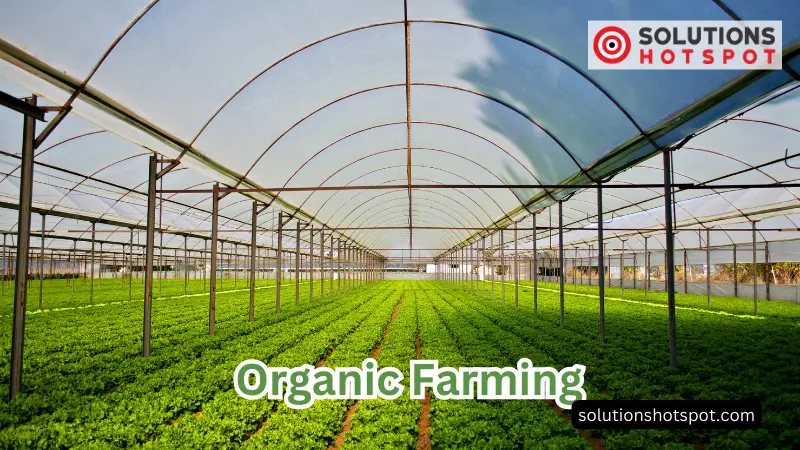

Unlock the Healthful Secrets of Organic Food Benefits
Also Read: 10 Benefits of Organic Food: A Healthier Choice for You
A Safer environment is another rewarding output of organic farming, backed by various
environmental protection agencies. Staunch utilizers of organic practices opt for natural
methods such as crop rotation, green manure, and biological pest control. This minimizes
environmental pollution, reducing toxic runoff that affects our water systems, and supporting
overall biodiversity health. Experts indicate that organic farming in vineyards, for example,
introduced safer pest control measures reducing harmful impact on surrounding water sources thereby leading to healthier and safer ecosystems.
Organic farming not only balances nature but also cultivates high productivity, debunking the myth that organic methods result in less yield. Various studies have shown that organic farms use 45% less energy and are more efficient when compared to conventional farming methods. One great example is Rodale Institute’s Farming Systems Trial, the longest running comparison of organic and conventional agriculture, which showed organic yields matching conventional yields and outperforming in years of drought. In addition, organic farming practices maintain soil health for future generations to continue providing sustainable food sources.
No Hidden Dangers: Organic Food and Transparency
The labels on organic food tell you a great deal. They provide assurance that the item has been produced in adherence to stringent guidelines. These markings ensure that consumers are aware of what they’re ingesting, and they are a hallmark of the transparency inherent in the organic food industry.
This transparency extends beyond mere labels. Organic farming takes a clear and open stance on food production. It lifts the veil on conventional methods, revealing a more natural and honest approach to our nutrition. This means less reliance on harmful substances and obscure production methods, and it contributes to a higher degree of clarity about what goes onto our plates.
One of the primary attractions of organic food is the significant reduction of exposure to
pesticides. By choosing organic, consumers can limit their intake of these harmful substances, and this decision can influence overall health. It’s comforting to consume fruits, vegetables, and grains knowing they haven’t been aggressively treated with pesticide that may harm our health.
Organic food has sometimes been haunted by a misconception — that it is more prone to
disease due to the absence of synthetic pesticides. However, organically-farmed foods are
subjected to rigorous checks and have to meet strict standards to be certified as organic. They are less likely to carry pesticide residues that could lead to health complications, which in turn increases their safety profile. Hence, despite common fears. organic food in fact assures a safer and healthier choice for consumers.
Tips on Transitioning to an Organic Lifestyle
Starting off with incorporating organic produce in your daily diet is possibly the most effortless and effective step towards embracing an organic lifestyle. Fresh fruits and vegetables that you consume on a regular basis can be replaced with their organic alternatives, thereby significantly reducing the intake of harmful pesticides and chemicals.
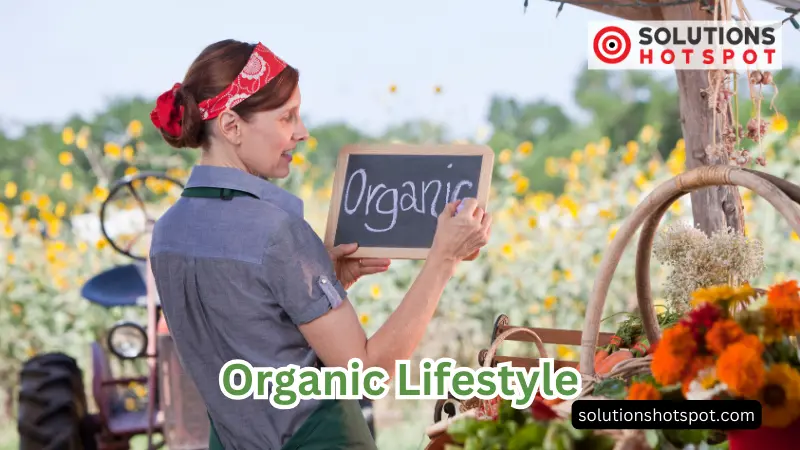

Unlock the Healthful Secrets of Organic Food Benefits
Also Read: Why Vegan Food is So Expensive
Organic food items are often misconstrued as unreasonably expensive, deterring many potential consumers. However, an insightful look reveals that the pricing includes costs of
environmentally friendly practices and fair wages for the workers. In the long run, these
expenditures add up to create a sustainable economy and healthy communities.
Speaking of the economy, transitioning to an organic lifestyle has far-reaching, positive effects. Every organic purchase supports local farmers and businesses, boosting an economy that emphasizes ecological balance and biodiversity.
It’s crucial to dispel the myth that organic equals perfection. While organic food abounds in
health benefits, it’s not free from flaws. Organic farms can still fall victim to natural pests or
diseases. Therefore, education and informed choices are key in the organic journey.
Finally, shifting to an organic lifestyle needn’t be an overnight change. It’s usually more
sustainable when it’s a gradual transition. Start with buying a few organic items during your
next grocery run. As you become comfortable and notice the benefits, you can continue
expanding your organic purchase list. The journey to an organic lifestyle is filled with
enlightenment and subsequent empowerment.
Your Organic Shopping Guide: Make Informed Choices
Making well-informed choices when shopping for organic products is truly essential to fully
enjoy the benefits of an organic lifestyle. It involves familiarizing yourself with the reliable
organic food labels, understanding what they guarantee, and knowing what each designation represents.
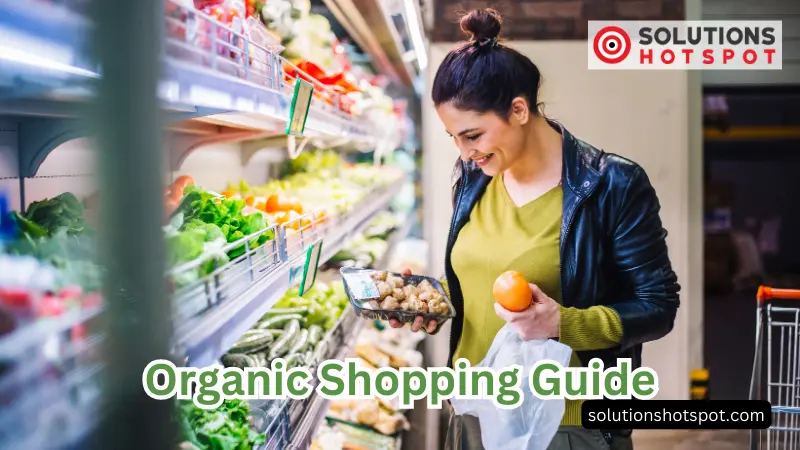

Unlock the Healthful Secrets of Organic Food Benefits
Also Read: 10 Energy Boosting Foods for Charismatic Personality
Shopping at organic markets has a unique set of advantages and can raise a few concers as
well. These markets often provide a greater array of organic options and typically support local farmers. However, be mindful of possible higher prices in some cases compared to conventional products. Being informed allows you to tap into the roots of organic food benefits, achieve peace of mind about the food you consume, and make the most of your organic lifestyle journey.
Unlock the Healthful Secrets of Organic Food Benefits
FAQ:
Q1: Does organic food really have more nutrients than non-organic?
A: While the nutrient content can vary depending on the specific food and farming practices, some studies suggest organic produce may have slightly higher levels of certain antioxidants and beneficial nutrients compared to conventionally grown options. However, the overall nutritional differences are often small and may not be significant for most people.
Q2: Are organic fruits and vegetables safer to eat than conventional ones?
A: Organic produce generally contains lower levels of pesticide residues compared to conventionally grown options. This can be appealing if you’re concerned about potential health risks associated with pesticide exposure. However, it’s important to note that even conventionally grown fruits and vegetables are rigorously tested and typically fall within safe limits for pesticide residues.
Q3: Is organic food worth the extra cost?
A: This is a personal decision. Organic food often costs more than conventional options, although the price gap has been narrowing in recent years. If you’re on a tight budget, focusing on buying organic for the “Dirty Dozen” (fruits and vegetables with the highest pesticide residue) could be a good compromise. Ultimately, the decision depends on your priorities, such as health concerns, environmental impact, and personal values.
Sources:
https://www.who.int/
https://www.usda.gov/
https://www. organic.org/

